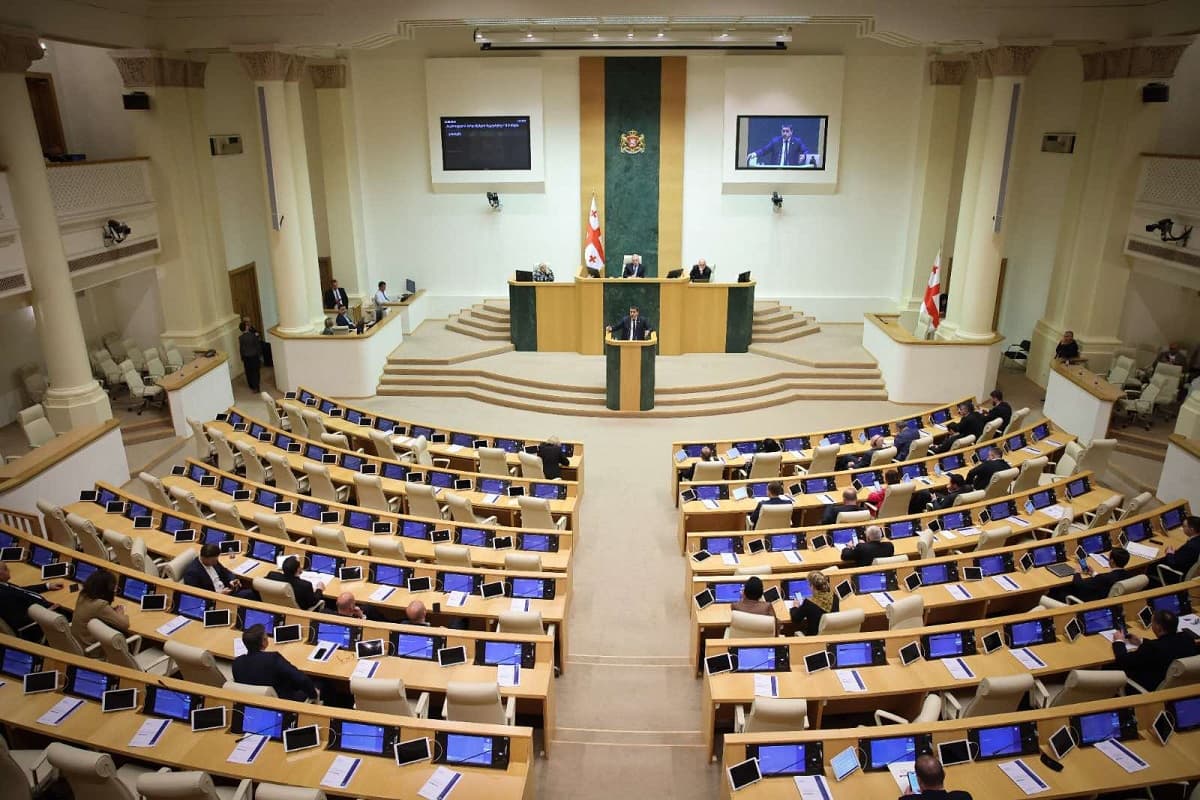Georgian Parliament approves controversial amendments allowing party bans, diplomatic dismissals

Both amendments have been condemned by the country's opposition.
Author
Front News Georgia
The Georgian Dream-led parliament has approved a legislative package allowing the Constitutional Court to ban political parties “whose declared purpose, activities, and personnel composition mirror those of a previously banned party.” The amendments passed during the third reading on Monday, fulfilling an election promise of the ruling Georgian Dream party to restrict opposition forces.
The newly adopted legislation empowers the Constitutional Court to outlaw any political party that is deemed a continuation of an already banned organization. This move has sparked concerns among opposition groups and civil society organizations, who argue it targets the country's opposition groups.
During the summer of 2024, amid the pre-election period, Georgian Dream had warned it would seek to declare opposition parties unconstitutional if it achieved a constitutional majority in parliament. Despite these, Mamuka Mdinaradze, the GD Executive Secretary, claimed on April 14 that the ‘collective National Movement’ - a term used by the ruling party to describe opposition forces - would still have the opportunity to participate in local elections this autumn.
In a separate move, the Georgian Dream parliament also adopted amendments to the Law on Diplomatic Service in its first reading. The changes, initiated by Khatuna Totladze, deputy to Maka Botchorishvili, the country’s Foreign Minister, were discussed on May 13 at the Foreign Affairs Committee.
The amendments introduce stricter rules for diplomatic officials, including the possibility of early dismissal if their actions are found to harm the interests or image of the country. The revised law also expands the principles of the diplomatic service to include "conscientious performance of official duties" and "unwavering adherence to general rules of ethics and conduct."
Furthermore, the amendments allow for the extension of the rotation period for diplomatic staff from six months to one year and introduce a semi-annual evaluation process for diplomatic officials, replacing the previous annual review. Under the current law, diplomatic officials who receive two consecutive unsatisfactory evaluations may be dismissed.





